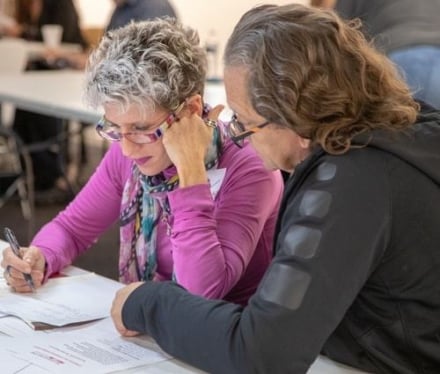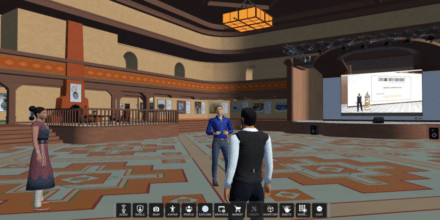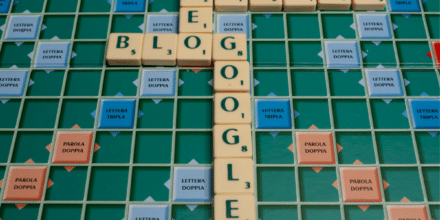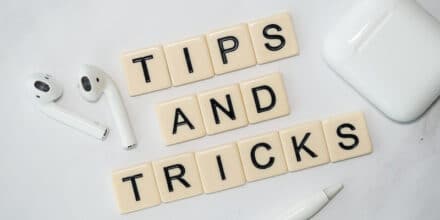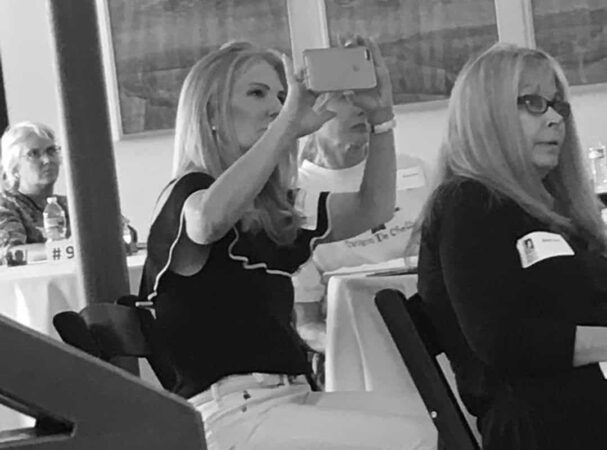self-confidence
/ˌsɛlfˈkɒnfɪd(ə)ns/
noun
a feeling of trust in one’s abilities, qualities, and judgment.
The definition of self-confidence is quite clear. We should all have the confidence in our work to be able put it out there and embark on an entrepreneurial journey.
Inspiration.
In her “Director’s View” column, “When Mindsets Shift, Big Things Happen” Elizabeth Hulings provides in-depth looks into her and Mary Hulings’ founding vision for CHF.
“When my mother and I established The Clark Hulings Foundation, our long-term goal was economic viability for independent artistic practice. We believe in the middle-class artist as an essential member of our society, and a strong contributor to our GDP. What drove us in this pursuit? Well, for starters, we’re the widow and daughter of an artist who was unafraid of the business world; my father never equated financial success with selling out, because he knew how to achieve the former without doing the latter. (Yes, it’s a perpetual balancing act between market and muse, but it’s entirely possible to maintain that balance over a long, successful career, if you are willing to do it.)”
Motivation.

Back in 2017, CHF’s Art-Business Accelerator had kicked into high gear, and there was repeated confirmation about how crucial CHF’s work has become. Fellows are accomplished, hardworking artists well into their careers, yet they are still searching for the knowledge and support they have not received elsewhere. In the interview, Building Confidence, Building Businesses – Q&A with Elizabeth Hulings, CHF Executive Director Elizabeth Hulings talked to Advisory Board Member, Writer, and Journalist Sofia Perez about the tangible and intangible impacts of business training. Here is Elizabeth’s response to a question about confidence.
“SP: That confidence is crucial, but it’s often beaten out of artists for calculated reasons.
EH: Take the analogy of buying a car. There’s no set price, so when you enter a dealership, their entire goal is to throw you off-kilter, to put you in an insecure psychological state so that they can gain the advantage. Oftentimes, the result is that you don’t push for the right price, and you end up paying more than you should.
We also saw it with the mortgage situation prior to 2008. A lot of people were buying homes and applying for interest-only mortgages. Many of those first-time buyers were preyed upon, and they were not equipped to sort through those agreements. Why? Well, that’s a much larger question about our educational system, but the fact is, there was a deficit of knowledge and experience there, and the lender was willing to exploit it. Similar things happen in the art world.
Artists don’t tend to come in with a strong business background or the confidence that comes from that kind of experience. Right from the beginning, they’re at a disadvantage, and there are people in the industry who exploit that.”
A Game Plan.
Need a place to start? Listen to this Thriving ArtistTM podcast Find the Best Representation for Your Art with Stephanie Birdsall.
“I see a lack of confidence standing in people’s way, they don’t trust what they’re thinking, they don’t trust what they’re painting, and as soon as they get a little confident I see a huge change.”


